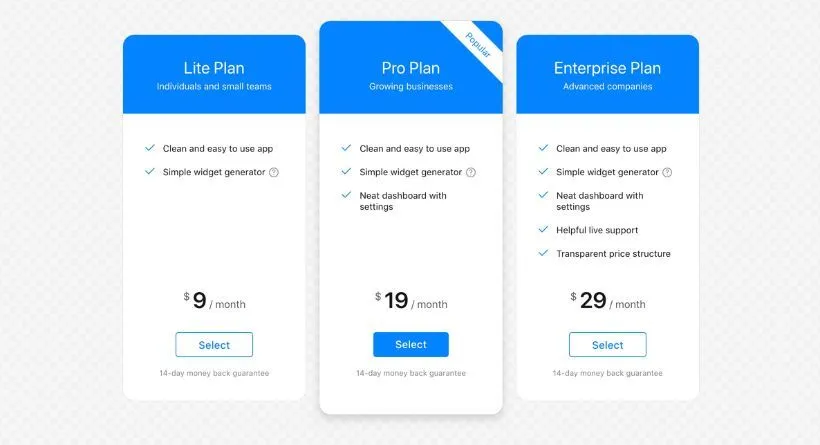Are you being haunted by the ambiguity of WordPress Pricing? You’re not alone. Navigating through the maze of the numerous WordPress plans and understanding the true cost can be daunting. This is a problem we acknowledge and believe us, it’s real.
But, what if we told you that there’s a solution? A way to decode the complexity of WordPress Pricing and find the most suitable option for your needs? In this blog post, we aim to demystify the intricacies of WordPress Pricing, providing you with a comprehensive guide to understanding the true cost of WordPress.
We promise not to leave any stone unturned. From explaining the pricing tiers to analyzing the additional costs that often go unnoticed, this post is your definitive guide to the world of WordPress Pricing.
Just imagine the sense of relief knowing exactly what you’re signing up for, no surprises, no hidden costs. We address your pain points, empowering you with the knowledge to make the best possible decision for your website. So, let’s embark on this journey together, because understanding WordPress Pricing shouldn’t be a hurdle on your path to success.
The Layers of WordPress Pricing
Let’s delve into the world of WordPress Pricing. There’s more than meets the eye, and we’re here to unmask it all for you.
Exploring the Basic Pricing Tiers
WordPress offers various pricing tiers. These include Personal, Premium, Business, and eCommerce plans. Each offers unique features and caters to different user needs.
The Personal Plan is budget-friendly, ideal for personal use. Then comes the Premium Plan, suitable for freelancers and bloggers. For small businesses, WordPress presents the Business Plan. Last, the eCommerce Plan is perfect for online stores.
But remember, WordPress Pricing isn’t as simple as it appears. There’s more to it than just these basic pricing tiers.
Hidden Costs You Need to Be Aware Of
WordPress Pricing isn’t just about the upfront costs. Like an iceberg, what’s visible is often just the tip. Below the surface, there are hidden costs you should be aware of.
These can include expenses for domain names and hosting, premium themes, and plugins. Then, there are developer costs for customizations and maintenance and security costs. These can add up, increasing the overall WordPress Pricing.
The Real Cost of Free WordPress Options
Nothing in life is free, and this adage holds for WordPress Pricing too. Yes, WordPress does offer a free plan. But it comes with its limitations.
The free plan lacks several features available in the paid plans. It doesn’t provide a custom domain, and WordPress ads are a constant feature. Upgrading later can also be a daunting task.
Also Read: How to Build a Effective Business Plan That Stands Out 2023
Dissecting WordPress Pricing

Now that we’ve scratched the surface let’s dissect WordPress Pricing more closely.
Breaking Down Each WordPress Pricing Plan
Personal Plan
The Personal Plan is the entry-level paid plan. It’s budget-friendly, providing a custom domain and removing WordPress ads. But, its customization options are limited, and eCommerce features aren’t included.
Premium Plan
The Premium Plan offers more advanced design tools and more storage. It’s ideal for freelancers and bloggers who want more customization but don’t need advanced business tools.
Business Plan
The Business Plan is a step up. It’s perfect for small businesses, offering advanced SEO tools, Google Analytics integration, and access to premium themes.
ECommerce Plan
Lastly, the eCommerce Plan, the most expensive, is designed for online stores. It offers advanced eCommerce features like payment processing and shipping options.
Also Read: How Much Does A Website Cost? (2023 Guide)
Additional Costs: What’s Not Included in Your Plan
With each WordPress plan, certain costs are not included. Understanding these can help you calculate the true WordPress Pricing.
Domain Names and Hosting
While some plans include a free domain for a year, you’ll have to pay for it in subsequent years. Also, if you want a specific domain, it might cost extra.
Premium Themes and Plugins
Want your website to stand out? Premium themes and plugins can help but at an additional cost. These tools offer advanced customization and functionality.
Developer Costs
Need a unique feature on your website? You might need to hire a developer. Remember, their fees aren’t included in WordPress Pricing.
Maintenance and Security Costs
Maintaining a website requires time and money. From regular updates to security checks, these costs can add up, impacting the overall WordPress Pricing.
In the world of WordPress Pricing, knowledge is power. Understanding these nuances helps you make an informed decision.
Cost vs Value: Is WordPress Worth it?
Navigating the landscape of WordPress Pricing can be tricky. But remember, cost and value are two different things. Let’s break it down.
Assessing the Value for Money
When considering WordPress Pricing, it’s crucial to assess the value for money. What are you getting in return for your investment?
The answer is a lot. WordPress provides a powerful, flexible platform for your website. It’s easy to use, highly customizable, and backed by a vast community.
Sure, there might be costs beyond the upfront pricing. But with WordPress, you’re not just paying for a website. You’re investing in a tool that can help your online presence grow.
Think about it this way. You’re not just buying a car; you’re purchasing the freedom to travel, the convenience of avoiding public transport, and so much more. The same principle applies to WordPress Pricing.
Comparing WordPress Pricing with Other Platforms
The next step is to compare WordPress Pricing with other platforms. How does it fare against competitors like Wix, Squarespace, or Shopify?
On the surface, some platforms might seem cheaper. But remember, WordPress offers unparalleled flexibility and control.
With WordPress, you’re not limited to a set of templates or features. You can customize your site to your heart’s content. You have the freedom to add any functionality you need.
Comparing WordPress Pricing to other platforms is like comparing apples and oranges. Yes, they’re both fruit, but they offer different flavors and nutritional value.
In the world of website building, WordPress stands out with its adaptability and scalability. These attributes, coupled with a vibrant ecosystem of plugins and themes, provide unmatched value for money.
Navigating WordPress Pricing might seem daunting, but understanding the value it brings makes it worthwhile. It’s not just about the cost; it’s about what you get in return.
Also Read: Starting a Freelance Business: An Awesome Step-by-Step Guide 2023
Conclusion
As you navigate the world of website creation, the pricing model of your chosen platform plays a pivotal role. However, it’s essential to look beyond the price tag and consider the value proposition. What benefits does the platform offer you? How will it help you reach your goals? In the end, the best decision will not solely rely on the cost but on the value and potential returns, it can provide. Remember, investing wisely in your website today could reap significant rewards in the future.







